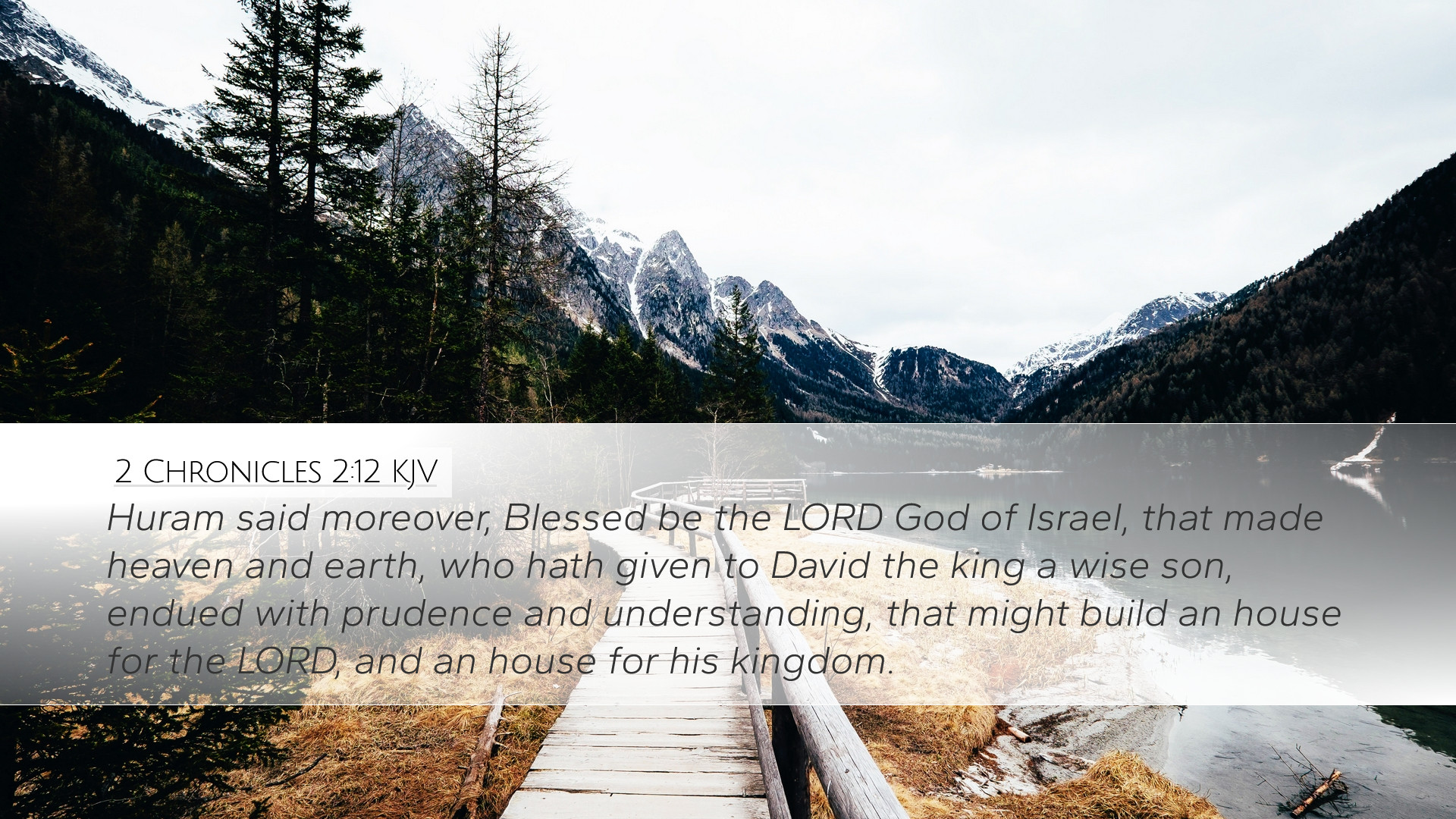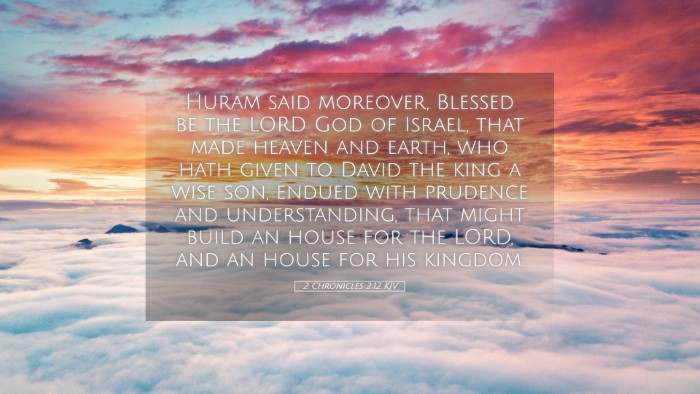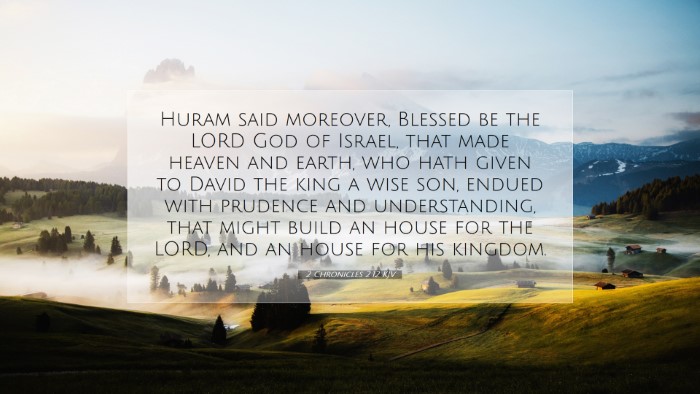Commentary on 2 Chronicles 2:12
Verse Context: "And Huram said, Blessed be the Lord God of Israel, that made heaven and earth; who hath given to David the king a wise son, endued with prudence and understanding, that might build an house for the Lord, and an house for his kingdom." – 2 Chronicles 2:12 (KJV)
Introduction
This verse is situated within the broader context of Solomon's preparations to build the temple. It is a pivotal moment capturing the dialogue between Solomon and Huram, the king of Tyre, who is sending materials and skilled labor to assist Solomon in this sacred project. The verse expresses a profound acknowledgment of God’s providence and the wisdom granted to Solomon, a theme rich with theological implications.
Exegesis and Theological Insights
The verse emphasizes several key ideas:
- Divine Blessing: Huram’s proclamation of blessing highlights the theological importance of recognizing God's sovereignty and grace in human endeavors.
- God’s Creation: The reference to the "Lord God of Israel, that made heaven and earth" reminds the reader of God's omnipotence and His providential hand in the affairs of man.
- Wisdom Granted to Solomon: Recognizing Solomon’s wisdom as a divine gift elevates the king's role as a leader who is not only politically astute but spiritually discerning.
- The Purpose of the Temple: The construction of the temple is presented not merely as a political or architectural feat, but as a significant act of devotion to God and an expression of divine heritage.
Commentary Insights
Matthew Henry’s Commentary
Matthew Henry underscores the essential nature of God’s blessing in all ventures, particularly those aimed at worship and devotion. He notes that Huram’s statement is a recognition that all wisdom and knowledge necessary for righteous governance comes from God. Henry also emphasizes that the temple’s purpose transcends the physical structure, embodying a spiritual reality and relationship between God and His people.
Albert Barnes’ Commentary
Albert Barnes highlights the significance of acknowledging God’s gifts. He elaborates on how Huram’s blessing serves to remind the people of Israel of their covenant with God. Barnes identifies the connection between Solomon’s wisdom and his role in completing God’s plan for Israel. He suggests that the gift of wisdom is essential for leaders, emphasizing that true governance must be rooted in biblical principles and divine guidance.
Adam Clarke’s Commentary
Adam Clarke elaborates on the characteristics of Solomon’s wisdom, noting that it is not merely intellectual but deeply practical and derived from God. Clarke discusses how Huram’s praise serves as a model for recognizing divine providence in leadership roles. He points out that this wisdom is crucial for the tasks ahead, particularly in establishing the worship of Yahweh in the temple, thus ensuring faithfulness to God’s commands.
Theological Themes
This verse brings forth several overarching themes that are vital for pastoral and theological reflection:
- Divine Wisdom and Human Leadership: Understanding that all wisdom comes from God fosters humility in leadership and encourages reliance on divine insight.
- Worship as a Priority: The construction of the temple signals the importance of establishing a place of worship that facilitates communion with God.
- The Role of Community: The joint effort between Solomon and Huram symbolizes the importance of collaboration in fulfilling God’s missions and projects.
- Historical Continuity: Recalling the journey from David to Solomon reinforces the continuity of God's promises and the importance of legacy within the faith community.
Practical Applications
In light of 2 Chronicles 2:12, there are several practical applications for contemporary readers:
- Importance of Prayer for Wisdom: Leaders in the church and community should regularly seek God’s wisdom through prayer and the study of Scripture.
- Recognition of God in Our Endeavors: It serves as a reminder to credit God for our abilities and resources, cultivating a spirit of gratitude.
- Collaboration in Ministry: Encourages the building of partnerships among churches and ministries for the advancement of God’s kingdom.
- Commitment to God’s Purposes: Individuals and congregations should reaffirm their dedication to worship and service as central to their identity and mission.
Conclusion
The richness of 2 Chronicles 2:12 lies in its compact expression of faith in God’s sovereignty, the recognition of divinely granted wisdom, and the anticipation of a sacred task that echoes through the ages. Huram’s blessing encapsulates a truth that remains relevant for contemporary believers – that all our endeavors, particularly those pertaining to worship and service, must be rooted in acknowledgment of God’s grace and wisdom.


